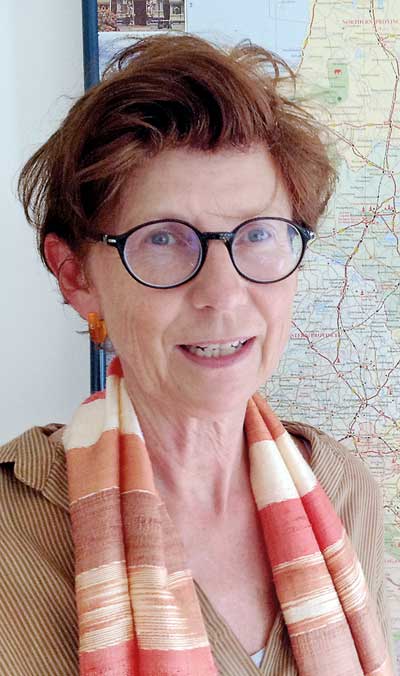Reply To:
Name - Reply Comment
Last Updated : 2024-04-26 13:26:00
 A wide-ranging interview with Grete Lochen, Ambassador for Norway in Sri Lanka on women’s contribution to national development and political participation, engagement in peace processes and the United Nations
A wide-ranging interview with Grete Lochen, Ambassador for Norway in Sri Lanka on women’s contribution to national development and political participation, engagement in peace processes and the United Nations In practical terms, it means that the contribution of women has been recognised and proven as paramount to economic growth and development. Research shows that if the labour participation of Norwegian women had been the same as the average participation of women in OECD countries that would equal the income from the oil sector. In other words, women’s participation in the labour market is more important than the oil for Norway. Thus, I would like to urge all countries to consider the role of women to national economies and development by realising that the converse would be a lost opportunity of untapped potential.
In practical terms, it means that the contribution of women has been recognised and proven as paramount to economic growth and development. Research shows that if the labour participation of Norwegian women had been the same as the average participation of women in OECD countries that would equal the income from the oil sector. In other words, women’s participation in the labour market is more important than the oil for Norway. Thus, I would like to urge all countries to consider the role of women to national economies and development by realising that the converse would be a lost opportunity of untapped potential..jpg) The Norwegian experience on women’s emancipation is not a unique one. It has been a fight and it continues to be a struggle. It has benefited from the modern women’s movement, affirmative policies and laws and intense lobbying and awareness-raising of both men and women
The Norwegian experience on women’s emancipation is not a unique one. It has been a fight and it continues to be a struggle. It has benefited from the modern women’s movement, affirmative policies and laws and intense lobbying and awareness-raising of both men and women.jpg) In addition to the 50 per cent in Cabinet, the current Prime Minister, Defence Minister and Finance Minister are women. You will see by the key positions held by women that the political participation has not been mere tokenism but rather a meaningful experience
In addition to the 50 per cent in Cabinet, the current Prime Minister, Defence Minister and Finance Minister are women. You will see by the key positions held by women that the political participation has not been mere tokenism but rather a meaningful experience
Add comment
Comments will be edited (grammar, spelling and slang) and authorized at the discretion of Daily Mirror online. The website also has the right not to publish selected comments.
Reply To:
Name - Reply Comment
US authorities are currently reviewing the manifest of every cargo aboard MV
On March 26, a couple arriving from Thailand was arrested with 88 live animal
According to villagers from Naula-Moragolla out of 105 families 80 can afford
Is the situation in Sri Lanka so grim that locals harbour hope that they coul